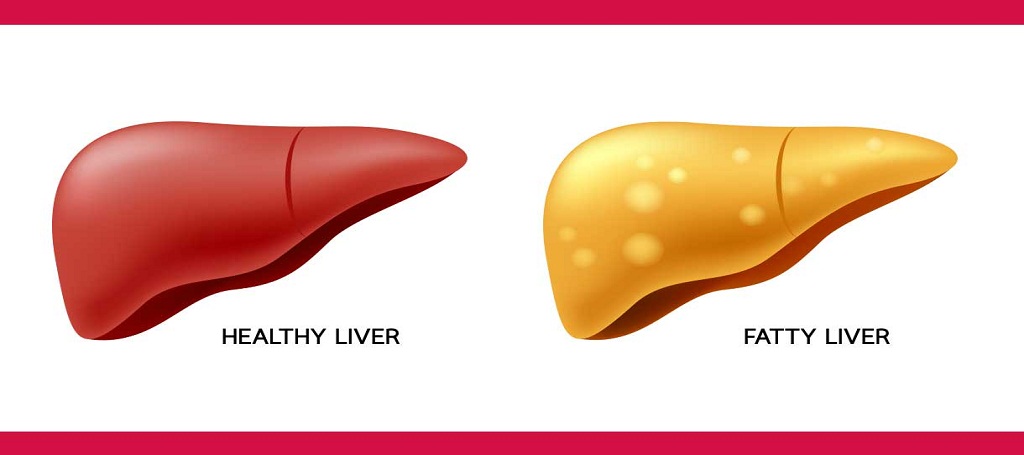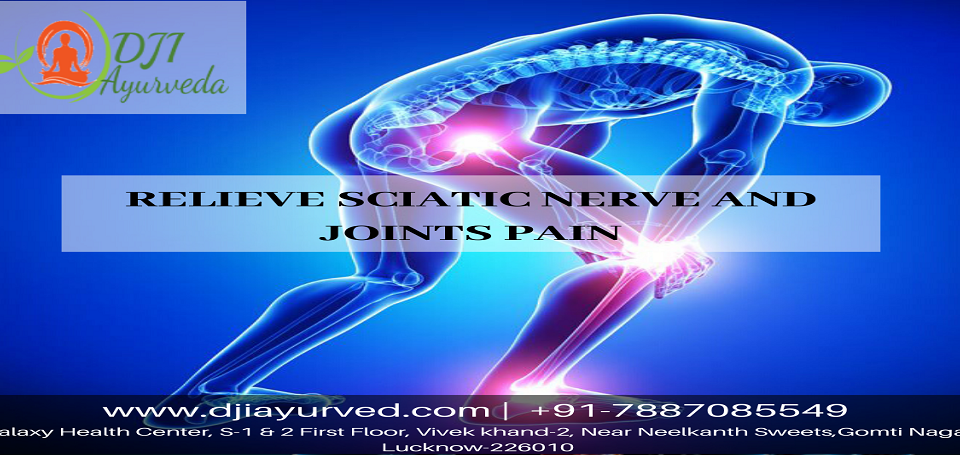Fatty Liver Best Treatment in Ayurveda – DJI Ayurveda

Ayurvedic Doctor For Weight Loss in Lucknow – DJI Ayurveda
February 23, 2020Among liver-related diseases, fatty liver is one of the most common diseases affecting most people globally. According to statistics, approximately one in every 10 people suffer from a fatty liver problem. Excessive fat formation in liver cells (10% higher than the weight of the liver) causes swelling in the liver due to which fatty liver problems arise.
Symptoms of fatty liver include confusion, fatigue, weakness, weight loss, and stomach problems. If it is not treated on time, it can also cause liver damage and liver cirrhosis.
Eating too much food increases the risk of fatty liver. Alcohol is also a cause of alcoholic fatty liver disease. Diabetes, obesity, malnutrition, certain medications (such as aspirin) and continued weight loss can cause non-alcoholic fatty liver disease.
Ayurvedic treatment of fatty liver and most liver disorders consists of panchakarma therapy such as virechan (laxative action) with Bhumi Amalki and Guduchi. Ayurvedic blends such as Arogyavardhini Juice and Fat Guduchyadi Kashaya have liver-protective properties and also improve the normal functioning of the liver, hence these Ayurvedic blends are given in the treatment of fatty liver. Healthy and nutritious diet and quitting alcohol and smoking can cure and prevent this disease. Medicine for fatty liver in Ayurveda plays a major role in curing it.
Fatty liver from the point of view of Ayurveda
According to Ayurvedic text, the problem of Kapha Medo Dushti (worsening of phlegm and fattening) occurs in the early stage of non-alcoholic fatty liver disease. In the case of bile, there are inflammatory problems that can lead to steatohepatitis (liver failure due to the accumulation of fat in the liver). In the pathogens, when Vata is absorbed, it remains in the body in the form of fibrosis and can take the form of cirrhosis. The problem of fatty liver can be controlled properly by reducing agni vaiganya (abnormality in the digestive system), balancing phlegm and fattening, and improving edema (blockage in the circulation nerves).
The exact cause of the non-alcoholic fatty liver disease is not yet known, but due to excessive intake of carbohydrates, fats and proteins present in the food, it can be the disease and its pathogenesis and disease-related causes of obesity. Are similar. The initial symptoms of non-alcoholic fatty liver disease are similar to indigestion. It causes flatulence, heaviness, increased or decreased appetite, diarrhoea, belching, constipation and restlessness. As the disease progresses, symptoms related to acidity include a decrease in taste, a burning sensation in the chest and abdomen, sour belching, flatulence, and thin stools.
Fatty liver enlargement leads to cirrhosis or fibrosis which can take the form of severe liver disorders such as pandu (anaemia), blood pressure (bleeding from the nose and mouth) and kamala (jaundice) disease. According to Ayurveda, poor lifestyle and wrong habits related to food, causing an imbalance between the person and the ecosystem is one of the leading causes of metabolic problems such as non-alcoholic fatty liver disease. Therefore, along with yoga, pranayama, a balanced diet and lifestyle can prevent and prevent fatty liver disease. Ayurvedic herbs for fatty liver helps in curing it with no side effect.
The fatty liver best treatment in Ayurveda
Purgation
- In purchana karma, the body is cleansed through a squad. It is especially used to clean excess bile from the body. Along with bile, it also cleanses excess vata and phlegm.
- Asthma, disorders related to the large intestine, disorders due to blood metal breakdown, depression, gastrointestinal problems and problems related to bile can be treated with dementia.
- Hot liquid or solids, meat soups and foods contain fatty substances that are given to the patient before purgation.
- The herbs used in this process are selected according to the patient’s condition.
- After purgation, one feels lightness in the body and improvement in appetite.
- In the treatment of liver-related diseases, purgation is known as purification karma so it can be used in the treatment of kamala (jaundice) and fatty liver.
Vomit
- Excessive pitta and phlegm dosha are taken out of the body through the mouth in vomit karma.
- Emesis is recommended in the treatment of anorexia (abnormally low body weight and excessive fear of weight gain), asthma, peptic ulcer, sinus, and phlegm related diseases.
- Before vomiting, milk, oily foods, animal flesh and fatty foods are given to increase phlegm in the body.
- Vomiting is also beneficial in weight loss, total cholesterol level and total triglycerides. Therefore, vomiting can help in the treatment of obesity caused by fatty liver. (Read more – How much should cholesterol be)
In this process urea and serum creatinine levels decrease and liver function improves. One can completely rely on ayurvedic medicine to reduce fatty liver.
Other suggestions related to Ayurvedic treatment of fatty liver
One of the major organs of the body is the liver. Diseases that affect liver functions have a profound effect on whole-body functions and health. Ayurvedic herbs and blends are used in the treatment of fatty liver as they have liver-protective properties which not only prevent and control liver diseases but also improve the normal liver function.
One of the Panchakarma therapies clears the bad Vata dosha from the body which is the major cause of fatty liver. By adopting good dietary habits and exercising daily, fatty liver can be controlled properly and overall health can be improved.
We hope that you would have got complete idea about ayurvedic treatment for fatty liver.





